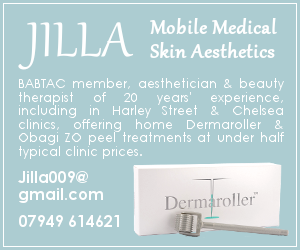Changes in your eyesight tend to creep in quietly. One day you’re reading fine, the next you’re squinting at your phone. It’s easy to brush it off until it starts affecting your daily routine. If you’re thinking about taking something to support your eyes, knowing what to look for in a supplement can help you choose with confidence. Keep reading to find out which ingredients are worth your attention and how a sight care supplement might fit into your daily routine.
Why Ingredients Matter
Not all eye supplements are made the same. Some offer little more than a basic multivitamin, while others include nutrients that have been studied for their role in keeping eyes healthy. If you’re spending your money, you want it to count.
A good place to start is by looking for a sight care supplement that follows formulas backed by research, like AREDS2. TThis was a major clinical study led by the US National Eye Institute, which tested how certain vitamins and minerals might slow the progression of age-related macular degeneration (AMD). The right blend may help support your vision, especially as you get older.
Lutein and Zeaxanthin: Nutrients for the Retina
These two nutrients are found in high amounts in the centre of your retina, the part that lets you see fine detail. While leafy greens and corn are good dietary sources, not everyone gets enough of them through food alone.
Lutein and zeaxanthin help filter out blue light and support the eye’s natural defences. Getting enough of them might also help with certain age-related vision problems, especially when included regularly in your diet or through supplementation.
Omega-3 Fatty Acids: Support for Dry Eyes
Omega-3s are often linked to heart health, but they’re also useful for your eyes. DHA, one of the main omega-3s, helps keep the retina working well and may support moisture levels in your eyes.
If you often deal with dry or irritated eyes, omega-3s might be worth considering. Many people don’t get enough from food alone, so supplements often made from fish oil or algae can help fill the gap.
Zinc and Vitamins C & E: Antioxidant Protection
Your eyes deal with constant exposure to light, which can lead to cell damage over time. Zinc, vitamin C, and vitamin Eall help the body protect itself against this type of stress.
Zinc also helps your body use vitamin A, which is essential for seeing clearly in dim light. These ingredients often show up in AREDS2-based supplements because of their potential to support long-term eye health.
Vitamin A: A Basic Essential
Vitamin A plays a quiet but important role in keeping your eyes healthy. It helps keep the surface of your eye moist and supports night vision. If you don’t get enough, your eyesight can suffer. Most quality supplements include vitamin A, often in forms suitable for people who smoke.
Think Before You Take
Eye health supplements may help, but they don’t replace good habits. A healthy diet, sun protection, and regular eye checks still matter. Speak to your GP or optician before starting any supplement. That small step today might help protect your sight in the long run.








